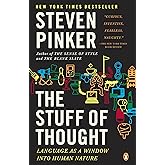
Enjoy fast, free delivery, exclusive deals, and award-winning movies & TV shows with Prime
Try Prime
and start saving today with fast, free delivery
Amazon Prime includes:
Fast, FREE Delivery is available to Prime members. To join, select "Try Amazon Prime and start saving today with Fast, FREE Delivery" below the Add to Cart button.
Amazon Prime members enjoy:- Cardmembers earn 5% Back at Amazon.com with a Prime Credit Card.
- Unlimited Free Two-Day Delivery
- Streaming of thousands of movies and TV shows with limited ads on Prime Video.
- A Kindle book to borrow for free each month - with no due dates
- Listen to over 2 million songs and hundreds of playlists
- Unlimited photo storage with anywhere access
Important: Your credit card will NOT be charged when you start your free trial or if you cancel during the trial period. If you're happy with Amazon Prime, do nothing. At the end of the free trial, your membership will automatically upgrade to a monthly membership.

Download the free Kindle app and start reading Kindle books instantly on your smartphone, tablet, or computer - no Kindle device required.
Read instantly on your browser with Kindle for Web.
Using your mobile phone camera - scan the code below and download the Kindle app.

OK
 Audible sample Sample
Audible sample Sample 


How the Mind Works MP3 CD – MP3 Audio, April 22, 2014
Purchase options and add-ons
In this delightful, acclaimed bestseller, one of the world’s leading cognitive scientists tackles the workings of the human mind. What makes us rational—and why are we so often irrational? How do we see in three dimensions? What makes us happy, afraid, angry, disgusted, or sexually aroused? Why do we fall in love? And how do we grapple with the imponderables of morality, religion, and consciousness? How the Mind Works synthesizes the most satisfying explanations of our mental life from cognitive science, evolutionary biology, and other fields to explain what the mind is, how it evolved, and how it allows us to see, think, feel, laugh, interact, enjoy the arts, and contemplate the mysteries of life. This new edition of Pinker’s bold and buoyant classic is updated with a new foreword by the author.
“Undeniably brilliant.” —Newsday
“Big, brash, and a lot of fun.” —Time
“Hugely entertaining…always sparkling and provoking.” —Wall Street Journal
“Witty popular science that you enjoy reading for the writing as well as for the science.” —New York Times Book Review
- LanguageEnglish
- PublisherBrilliance Audio
- Publication dateApril 22, 2014
- Dimensions6.75 x 5.5 x 0.5 inches
- ISBN-101491514965
- ISBN-13978-1491514962
The Amazon Book Review
Book recommendations, author interviews, editors' picks, and more. Read it now.
Similar items that may deliver to you quickly
Editorial Reviews
About the Author
Audie award winner Mel Foster’s background in acting dates back to his days at the University of Michigan, where he received an MA in Theater. His career has covered everything from acting and directing to writing and casting. He lives outside Detroit, Michigan.
Product details
- Publisher : Brilliance Audio; Unabridged edition (April 22, 2014)
- Language : English
- ISBN-10 : 1491514965
- ISBN-13 : 978-1491514962
- Item Weight : 3.5 ounces
- Dimensions : 6.75 x 5.5 x 0.5 inches
- Best Sellers Rank: #1,208,688 in Books (See Top 100 in Books)
- #1,485 in Anatomy (Books)
- #4,590 in Books on CD
- Customer Reviews:
About the author

Steven Pinker is one of the world's leading authorities on language and the mind. His popular and highly praised books include The Stuff of Thought, The Blank Slate, Words and Rules, How the Mind Works, and The Language Instinct. The recipient of several major awards for his teaching, books, and scientific research, Pinker is Harvard College Professor and Johnstone Family Professor of Psychology at Harvard University. He also writes frequently for The New York Times, Time, The New Republic, and other magazines.
Customer reviews
Customer Reviews, including Product Star Ratings help customers to learn more about the product and decide whether it is the right product for them.
To calculate the overall star rating and percentage breakdown by star, we don’t use a simple average. Instead, our system considers things like how recent a review is and if the reviewer bought the item on Amazon. It also analyzed reviews to verify trustworthiness.
Learn more how customers reviews work on AmazonReviews with images
-
Top reviews
Top reviews from the United States
There was a problem filtering reviews right now. Please try again later.
It is not in my opinion as good a book as The Language Instinct, nor as good as The Blank Slate, which it resembles in some ways (I am reading them simultaneously, though I read TBS years ago for the first time, and you can't help but notice the cross-over). So, I considered giving it four stars. But, then I decided, it is such a powerful performance, and so well written, that it shouldn't get less than five stars just because he didn't surpass himself. I have another book of his on tap and I'm going to get right to it.
I will offer this minor criticism. Have you ever sat through a fireworks display that just never ended? It might have benefitted from a little tighter editing, but it seems like he just doesn't want to leave anything out. If he knows it, he want us to know it too.
As usual, Pinker somehow manages to write clearly and engagingly without loss of precision while leaving no doubt as to where he gets his data. If professional scientific publications were written this way, we'd be a lot farther along, but it's =extremely= hard to do. Lord knows I've tried.
Pinker focuses on the instinctual (read "emotional") prods our genes use to steer us toward the 90% solutions evolved for success up to and during our hunter-gatherer days. With the explosive growth of technology over the last century or so, many of those once 90% solutions have become 90% backfires, but they continue to motivate our individual and collective actions nonetheless. Before man-made fires became widespread, moths' light-seeking instinct was almost always adaptive. Modern humans likewise repeatedly fly into all manner of figurative "fires" of our own invention -- often with precious little insight into why we keep doing so despite ample opportunities to learn better from instantaneous global news coverage ostensibly pursued for just that purpose. If widely read and taken to heart, this book could make a good dent in that. Seriously.
Steven Pinker's book, "How the Mind Works", is a study of the human brain, how it works, and why it works the way it does. In eight chapters it reconstructs the brain from the bottom up, starting from the simplest of processes and combining them into the complex thoughts and behaviors we experience. The book is as much about how the mind works as it is about evolution, Pinker's main solution for the 'why'. He begins with the "Standard Equipment" of the mind, how it is an organ system made up of many subunits called modules. Then, he discusses in length the Computational Theory of Mind, essentially the idea that our brains are information processing machines, not to be confused with the 'mind as a computer' model, which differs slightly but in very fundamental ways. With the fundamental 'how' taken care of, Pinker jumps headlong into the 'why'. Over the next two chapters he gives an expert description of the theory of evolution, and his thoughts on why our brains could have evolved from an ape's. He calls to light our ancestor's massive devotion to visual processing in the brain, and the ability to see and understand in three dimensions, adding that most attempts to understand abstract concepts result in mapping them in 2- or 3-dimensional space (graphs, charts, etc.). He goes on to describe the benefits of increased intelligence from an evolutionary standpoint, and how it would outweigh the costs associated with it. With the basic concepts of how and why the mind works as it does, in the next few chapters he extrapolated these ideas across a number of human behaviors and abilities, on topics such as love, kinship, art and music. Finally, he ends the book with a perhaps overzealous chapter title: The Meaning of Life". Pinker suggests that he cannot profess to know if these ideas are absolutes, and furthermore that there may be some things, such as consciousness, which we may never be able to comprehend because of the way we are made. Of course, all these claims are contingent on the Computational Theory of Mind and the Theory of Evolution, but both theories are well supported and there is no reason not to except sound rationalizations based upon them.
Pinker is an academic, and it shows in his style. He tends to delve into almost excessive rigor in describing and defending his ideas on the matter at hand. At times this can make it difficult to read, especially in a casual manner, and reminds one of reading an academic journal more so than a book for the layperson - this may be due in part to the actual subject matter, which itself needs long and sometimes arduous explanation for anyone not familiar with it. Verbosity aside, the format of the book is excellent. It provides a neat step-by-step analysis of each part of the currently discussed issue, citing its pros and cons and moving successively closer to the final conclusion by rejection and substitution of 'lesser' theories or models with more robust ones. Then each major idea is expanded or built upon to introduce and explain higher or more complex levels of thought.
Pinker essentially relies on two major theories for everything in his book: The Computational Theory of Mind and the Theory of Evolution. In fact the explanations of those two theories take up roughly one third of the book, and with good reason. Because of the way the book is structured, the underlying theories make up the meat of the message he is trying to send; everything else is simply a logical extrapolation from the rules set by the theories he bases his ideas on. Therefore the most scrutiny should be put on how he defines the rule set and how those rules are put to use.
The Computational Theory of Mind is fairly straightforward. Pinker simply iterates through various models of neural circuitry and how it accomplishes a task on a very basic level. The abstract model is based on symbols, a sort of mental identifier of a concept, that are used to describe things with more complexity by combination of symbols. Each subsystem in the brain is made up of a hierarchical set of sub-subsystems which are in turn contrived of yet another set of subsystems, and so on until you reach a basic unit that is not much more than a switch, which is similar to how computer circuits work.
Pinker's application of this model to vision is quite interesting. Vision is not simply a recording like a home video, but a set of inputs that go through a tremendous amount of processing in real time throughout parallel circuits which analyze different aspects of the input. He explains these stunningly with the use of a number of optical illusions or phenomena. Most memorable being the folded sheet, which is a grid with two bends in it and a plus shape coloring. He uses an analogy of a painter, a lighting specialist and a metalworker trying to recreate that image. Each can produce the image individually, but if a supervisor utilizes each one optimally, the cost is significantly reduced. This supervisor in the analogy is the algorithm that computes the most likely rendering of what we see based on a sort of cost analysis, with more common or normal renderings being 'cheaper'. The analogy, though simplified, is enlightening.
The discussion of evolution is similarly engaging. It is a great description of why certain structures, such as his favorite, the eye, would have come to be so complex. Furthermore, he adequately dispels many misconceptions about evolution. One being that all features of an animal are adaptations to some selective force. This is simply not true, and is a gross assumption to make. Applying evolution to many cultural aspects of humanity explains a lot. Pinker shows that cohesive social groups and intelligence are potentially reciprocating stimuli for improving the other. Being a social creature requires more intelligent interaction to maintain the good of the whole and to protect oneself from any mal intent of others in the group. Similarly, higher intelligence and the ability to predict the consequences of an action allow social creatures to share resources in return for mutual protection and fidelity; an alliance. These benefits would select for more intelligent creatures over the generations. Evolution, Pinker says, has resulted in the "ultimate revenge of the nerds". The intelligent - but weaker, smaller, and slower - animals have overtaken the large, fast, and strong, essentially by being able to plan more effectively.
Unfortunately, one aspect of the mind that Pinker seems to neglect is the plasticity of the mind. Pinker seems to maintain the model of the mind as a sort of compartmentalized system with innate abilities and tasks assigned to each. However, it has been shown that this is not the case. The mind can in fact rewire itself (at any age) to learn new things, or to strengthen new or old connections. (See the studies of Paul Bach-y-Rita)
Overall the book sheds an amazing new light on the world and ways we interact with it, as well as why we interact that way. With few exceptions, Steven Pinker's presentation here is well-formed, compelling, and intriguing. If you have issue with evolutionary theory, you may have difficulty accepting much of what is postulated throughout the book. However, if approached with an open mind, the ideas within can at least make you think about the world a little differently, even if you don't accept the content.
Top reviews from other countries
While delving into the intricacies of the mind, Pinker's writing style occasionally teeters on the verge of being overly detailed, making certain sections feel a tad laborious. However, this is a minor quibble in the grand scheme of things, especially when considering the wealth of information and insight he provides. From evolutionary psychology to cognitive processes, Pinker traverses diverse domains with eloquence, offering readers a profound understanding of the brain's inner workings.
Pinker's ability to synthesize various disciplines and present them in an accessible manner is a testament to his prowess as a communicator. Through his writing, complex topics become approachable, and readers are rewarded with "aha" moments that illuminate the mysteries of human behavior and cognition. "How the Mind Works" not only satiates intellectual curiosity but also inspires a thirst for further exploration into the realms of psychology and neuroscience.
In conclusion, "How the Mind Works" is a must-read for anyone seeking to unravel the enigma of human cognition. While some passages might demand more attention, the overarching value of the book is undeniable. Steven Pinker's ability to ignite curiosity and promote deeper understanding makes this book an enriching experience. Having been spurred by this book, I eagerly anticipate delving into Pinker's other works, confident that they will deliver equally insightful perspectives on the complexities of the human mind.
On ressort après sa lecture enrichis mentalement,avec des vues plus claires sur notre fonctionnement cerebral!!













